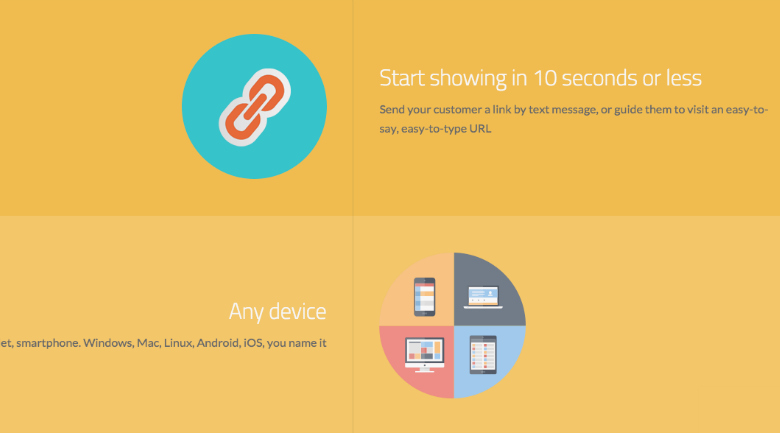Aaron Dickinson reminded me of something that always leaves me a little let down. The end of the transaction.
We work extremely closely with our clients, spending a great deal of time with them. We learn about their families, jobs, finances, personal preferences, even their favorite tv shows. We’re creating a relationship, a bond, a trust.
In order to find just the right house, we need to know if they like to garden. Do they have a dog? Big dog? Inside or outside dog? What do they do for a living? How far will they be commuting? Or do they need a home/office? Maybe they bring home a work vehicle. Do they cook and have a lot of gadgets? Do they prefer a gas or electric stove? Do they have one car or two? Have they purchased/sold a home before? Do they enjoy the negotiation process or is it going to keep them up all night? The questions go on and on. Why?
Realtors always have a dilemma: are we providing to much information or not enough? It’s important for the client to be educated, not overwhelmed. They should be comfortable in making decisions, know they’re in control of the process and understand what’s happening and why, know what’s normal for a purchase or sale, and know what the options are in each situation.
We’ve got the criteria. The next challenge begins. Now we have to put it into a tangible property in the right price range, location and condition. That house isn’t always available. We’ve gotten to know the client and now it becomes a concern of them becoming disappointed. We want them to not only be happy with our services but be happy with the process. If they see too many houses they don’t like, it becomes discouraging and frustrating.
We find the one. We review the disclosures and there’s something unappealing about them. Nope, it’s not the one. The process starts all over. By now I know them even better. We’re a team. We’re working toward a common goal. The stakes are really high. If I make a blooper now, it could ruin all the trust I’ve worked so hard to build. And the client is out all of the time and commitment they’ve invested believing that I could do the job for them.
Right from the beginning, I’m fighting an uphill battle. I have to prove that I’m not the same as Aunt Patty’s realtor in Florida who cheated her out of her life savings.
So back to shopping we go. We find the right home. It’s the one they’ve always wanted. The inspections and disclosures are great. Friends and family come by to give their approval. Now I’ll really be a jerk if I screw it up.
We get the appraisal. No problem. Loan documents arrive at the title company. We sit at the table together while they sign them. A few days later, they’re proud, happy home owners holding the keys to their dream. Their new life is off and running.
What about me? I don’t get to see or talk to them several times a week. I lose track of their every day life. Yes, I call to catch up, but it’s not the same. So I’ve gotten quite sneaky. I make them my friends. That way I can call whenever I want, drag them to dinner or a movie, go to the dog park, birthday parties, baseball games. I have to say, it’s worked out quite well.
As a lifelong resident and local Realtor, Vicki has established herself as a respected member of the San Mateo County real estate community. She’s known for her wit, sarcasm, and her personality that shows through in her posts. You can find her spouting off at Twitter, here at ag, and her personal blog, San Mateo Real Estate Blog.com.









































Mariana Wagner
October 23, 2007 at 4:57 am
Nice one! We DO work so hard to build a relationship with our clients. We become an intricate part of their lives … until closing. I hate breaking up as much as the next guy. So, I love to make my clients my friends as well, because you never need an excuse to call a friend.
Benn Rosales
October 23, 2007 at 1:56 pm
As a guy I can say it is no different for me. My clients are everything to me, it’s personal, it’s not about a commission, it’s about winning for them. They see this, know this, live this for the life of a transaction and suddenly it’s over- they’re moved in and the need for you is very small. So you have two choices, 1 get dumped and it’s over, or 2, you do exactly what you described- you make friends. Golf, football, bbqs, whatever- I can honestly say some of my clients have become by greatest friends, many others have become friends of my wife, but one thing is for sure, my life is richer because of them, our relationships go far beyond that of a commission.
Jeremy Hart
October 23, 2007 at 5:19 pm
I agree, I’ve been so fortunate to see customers become clients, and clients become friends. Just this week I’ve had lunch with one client-become-friend, golf with another, and then some weekend fun with another. One of the benefits that CAN’T be valued in this business is the opportunity to influence lives, and have yours influenced, by these relationships. Great job Vicki!
Vicki Moore
October 23, 2007 at 7:36 pm
It’s one of the best parts of the job. I was calling them client-friends, but I’ve dropped the client part. Somehow the people I don’t like know it and they fire me.
Athol Kay
October 24, 2007 at 4:44 am
>>Somehow the people I don’t like know it and they fire me.
That’s a whole post right there.
Vicki Moore
October 24, 2007 at 5:59 pm
Ooooo Athol! Thanks for the direction. I’ll put that together!
Athol Kay
October 24, 2007 at 6:01 pm
I do what I can. 🙂
Vicki Moore
October 24, 2007 at 6:03 pm
You’re the best!